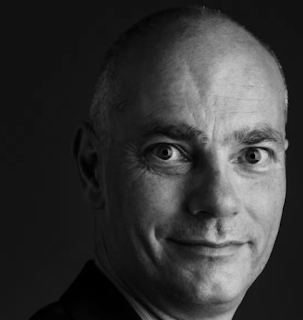The award shared by campaigning journalists Maria Ressa and Dmitry Muratov is a thoroughly deserved accolade. It gives a much-needed lift to the world’s media and comes amid an increasingly challenging environment
The award of the Nobel Peace Prize is eagerly awaited and often controversial. This year it has gone to two courageous campaigning journalists. The decision has given a much-needed lift to the world’s media at a time when press freedom is under threat.
Maria Ressa and Dmitry Muratov thoroughly deserve the accolade. Ressa is chief executive of Rappler, a media firm in the Philippines known for its uncompromising reporting. Muratov is co-founder of Russia’s leading independent newspaper Novaya Gazeta.
They have become standard bearers for the profession, sticking firmly to their journalistic principles in extraordinarily difficult circumstances. They faced stiff competition from, among others, environmental activist Greta Thunberg, the Black Lives Matter movement and the World Health Organization.
The choice of two journalists highlights the importance the judges attached to the role of the media and the dangers it faces.
Berit Reiss-Andersen, chairwoman of the Norwegian Nobel Committee, said: “Free, independent and fact-based journalism serves to protect against abuse of power, lies and war propaganda.”
Muratov dedicated the award to those who died defending the freedom of expression and named journalists murdered in Russia. Ressa said the prize was “for us all”. Her win will be keenly felt in Southeast Asia.
The veteran journalist is no stranger to Hong Kong. I first met her in 2018, when she was guest speaker at the Society of Publishers in Asia (SOPA) journalism awards. Ressa gave a compelling presentation, demonstrating how state actors in the Philippines had targeted her through an orchestrated social media campaign of misinformation and hate. She has since spoken with the same passion, eloquence and charm at the Hong Kong Foreign Correspondents’ Club.
Ressa has paid a high price for Rappler’s fearless reporting. It has sought to hold President Rodrigo Duterte to account, notably over his brutal war on drugs. She was hit with multiple lawsuits in a bid to silence her and her organisation, including tax allegations Ressa has branded “ludicrous”.
The journalist, a US citizen who worked for CNN for years, is on bail pending appeal after being convicted of “cyber libel” last year. She faces up to six years in jail. Another libel case against her was dismissed in August. “Two down, seven to go,” said her lawyer, Amal Clooney, at the time.
The award should prompt reflection on the importance of press freedom in Southeast Asia, from the Philippines to Myanmar, Cambodia and Hong Kong. The city has long enjoyed a reputation for its free and robust media. But journalists are working in an increasingly challenging environment, following the passing of a national security law by Beijing last year.
The tabloid-style Apple Daily, loved by some and hated by others for its anti-government stance, closed in June after executives and journalists were arrested under the security law and its financial assets frozen. Media access to government databases is being tightened. Chief Executive Carrie Lam Cheng Yuet-ngor made references to “biased media” in her policy address last week. A fake news law, likely to further curb press freedom, is on the way. Meanwhile, officials and lawmakers have taken to lecturing the media on “responsible journalism” and what it entails. Their view often appears to be that any story they dislike is “irresponsible”.
It is not difficult to find shining examples of responsible journalists. Just look at Ressa and Muratov. There are many in Hong Kong standing by the same principles. Ressa has been a fierce critic of social media platforms, believing they should do more to stop the spread of false information and hatred. In such an environment, journalists have a vitally important role to play in establishing the facts. They are part of the solution.
Governments should be promoting and protecting press freedom. Ressa’s words on receiving news of the award are inspirational. It was a recognition of the difficulties, she said, but “hopefully we are going to win the battle for the truth. We hold the line.”








No comments:
Post a Comment